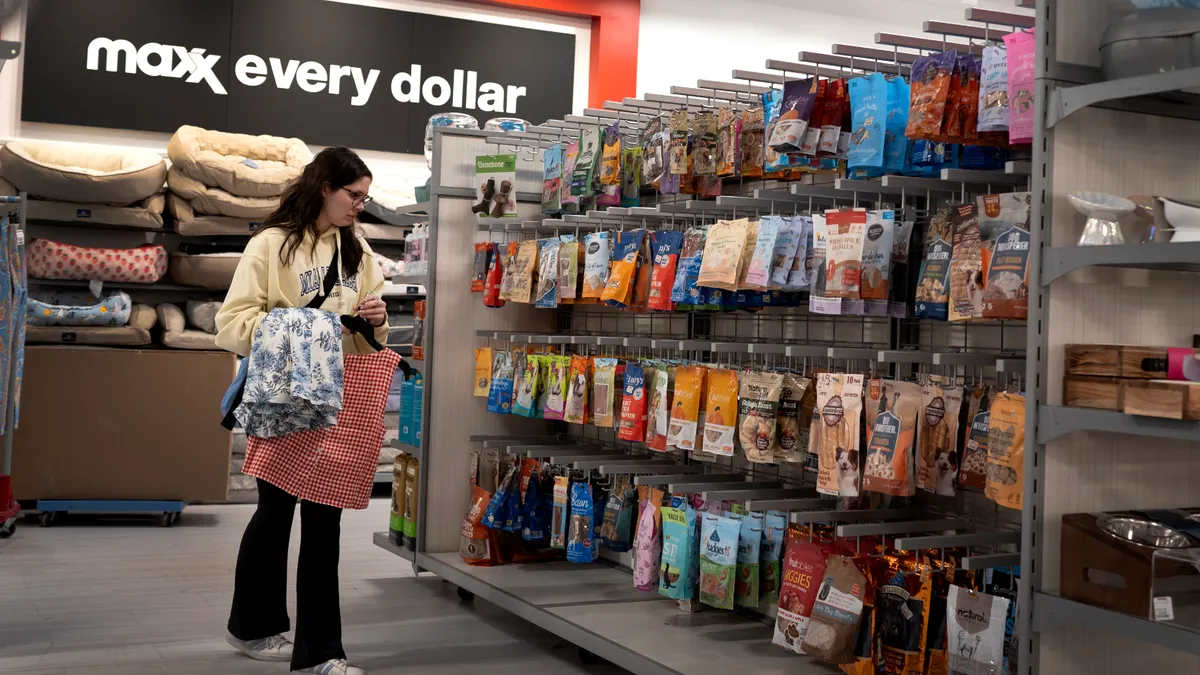Dive Brief:
- Fast fashion giants Temu and Shein have avoided certain import tariffs because of their low-priced products, United States lawmakers found in an investigation published Thursday.
- The report is part of an ongoing look into the labor practices of some fashion companies, including Shein and Temu, by the U.S. House Select Committee on Strategic Competition between the United States and the Chinese Communist Party.
- In May, lawmakers asked Shein and Temu, along with Nike and Adidas, to detail their compliance with the Uyghur Forced Labor Prevention Act, a 2021 law banning products from Xinjiang region in China.
Dive Insight:
The report details preliminary findings of its investigation, which isn’t yet complete.
Shein and Temu are able to avoid customs scrutiny on their shipments to the U.S. due to the de minimis provision of the Tariff Act of 1930, which mostly exempts packages worth less than $800 from being reviewed, per the report. This disproportionately benefits these retailers because their average products sell for just $11 and are shipped individually, directly to consumers.
As of last month, none of Temu’s items sold for more than $800, meaning all of its products fall under the de minimis rule, according to the report.
This month, a bipartisan group of lawmakers proposed a bill that would close the de minimis loophole.
The report found that Shein and Temu are likely responsible for more than 30% of all packages shipped to the U.S. each day under the de minimis provision, and they likely represent nearly half of such shipments to the U.S. that originate in China — or about 600,000 packages a day.
In 2021, more than 60% of all de minimis shipments came from China, according to the report.
The report states that Temu’s business model avoids the responsibility of complying with the UFLPA and other prohibitions on forced labor, without conducting audits or having a system in place to ensure compliance to the law.
Temu reported that the only measure it takes to ensure its shipments to the U.S. aren’t made with forced labor is that its suppliers agree to boilerplate terms and conditions on the matter. It also said it “‘does not expressly prohibit third-party sellers from selling products based on their origin in the Xinjiang Autonomous Region,’” per the report, which also says Temu has more than 80,000 suppliers.
The investigation found that Shein and Temu both ship millions of packages duty free to the U.S. without providing data on what they contain. By contrast, it found that American retailers such as Gap, David’s Bridal and H&M pay millions each year in import duties and provide information on what the packages contain.
In a statement to sister publication Fashion Dive, Shein said it provided detailed information to the committee and will continue to do so. A Shein spokesperson said the company doesn’t tolerate forced labor and has implemented a system to support compliance to the law.
Temu didn’t respond to Fashion Dive’s request for comment ahead of press time.
“We have no contract manufacturers in the Xinjiang region,” the Shein spokesperson said. “If any cotton from an unapproved region is detected, we take immediate action such as suspending production, halting shipments to the United States and removing product listings.
“As a global company, our policy is to comply with the customs and import laws of the countries in which we operate. SHEIN continues to make import compliance a priority, including the reporting requirements under U.S. law with respect to de minimis entries.”
Forced labor has been top of mind for lawmakers when considering Shein and Temu. Also in May, a separate group of 24 lawmakers wrote a letter to the Securities and Exchange commission asking it to halt a potential Shein IPO bid.

















